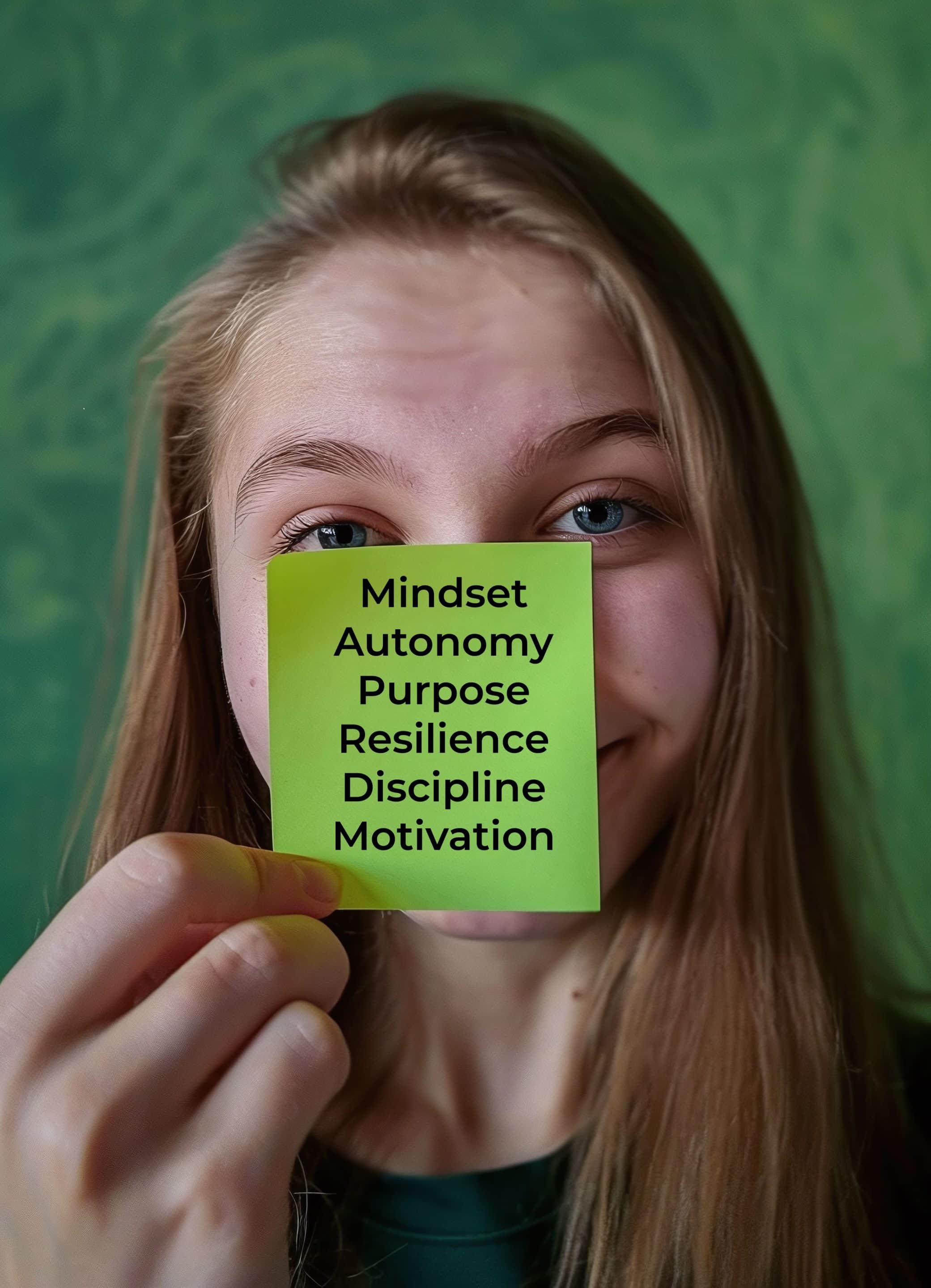TL;DR. Staying sharp as an engineer means cultivating a mindset of continuous learning and resilience. With the rapid evolution of technology and the impact of AI, engineers must remain adaptable, curious and proactive in their lane…and not only. This article explores how intrinsic motivation, habit-building and mindset can empower software developers to stay relevant and thrive in a fast-paced, ever-changing industry.
Context: introducing the concept of a growth mindset
The software development industry has turned into a hub of constant innovation. Tools, programming languages and frameworks continue to evolve, while automation and artificial intelligence (AI) are reshaping what software engineers do and how they do it. In such a dynamic field, developers are not only challenged to keep their skills up to date, but are also pushed to remain mentally agile, adaptable and continuously engaged in learning. The stages of human resource development and growth include intuition, inspiration, insight, hard work and continuous learning; once the cycle is stopped, people are approaching the work plateau.
As Daniel Pink explains in his book “Drive”, intrinsic motivation—our inner desire to seek knowledge and growth—is a powerful driver for sustained performance and satisfaction. For software engineers, nurturing this mindset is essential to navigating the industry’s demands. Beyond technical knowledge, mental resilience and a commitment to lifelong learning are what ultimately set thriving developers apart.
What is it?
Training the brain to stay sharp as a software engineer is about developing a mindset of constant growth and an openness to new challenges. This involves regularly engaging with new information, experimenting with emerging tools and cultivating habits that promote learning and adaptation. At its core, this mindset is about intrinsic motivation—the drive to learn and grow for the sake of mastery, autonomy and purpose.
Factors that make up the “morale of plateau” in career path include lack of compliance with job description due to inappropriate selection system (and lack of intrinsic motivation in job), lack of independence and job feedback.
Pink’s concept of intrinsic motivation centers on three principles:
Autonomy: the freedom to choose what to work on and how to learn.
Mastery: the desire to improve continuously.
Purpose: the commitment to meaningful work and contribution.
The autonomy principle is being highlighted by psychologists too. In addition, mental health specialists suggest that in order to remain fresh and relevant in this day and age, professionals, not just software engineers, should develop the following meta-competencies:
Discipline: the capacity to set goals and follow through, despite distractions.
The capacity to identify opportunities: to be able to see the match between your learned skills and working configurations.
Designer mindset: meaning the ability to put together different types of knowledge in order to put them to use.
For software engineers, these directions provide a framework for sustained learning, as they fuel a genuine desire to improve and stay relevant in the face of change.
Why is it relevant to work on your mindset
The rapid pace of technological change means that software skills can quickly become outdated. To stay relevant, software engineers must go beyond merely keeping up with trends; they must foster a proactive approach to learning, setting aside time to explore new concepts and rethink old ways of solving problems. By embracing this mindset, developers can use AI and other tools as enhancements to their skills rather than threats to their jobs.
By continuously setting new, self-directed goals that stretch their skills, engineers can foster a mindset that views challenges as opportunities for growth rather than obstacles.
Additionally, embracing a “growth mindset”—the belief that abilities can be developed through effort and learning—encourages resilience in the face of setbacks and motivation to explore new areas of interest within one’s role. Engaging in regular skill-building activities, like studying emerging technologies, experimenting with new tools, or collaborating with colleagues on challenging projects, helps developers stay intellectually engaged and avoid the staleness that leads to a plateau. This approach ensures that learning remains dynamic, fueling a sense of progress and renewal that keeps the brain sharp and work both challenging and rewarding.

What to do, from a practical perspective, to avoid plateauing is a mix of taking matters into your own hands, while managers play their part too. So this looks something like:
- encouraging managers to have constant and regular communication with people and teams about their growth and development plan; one of the biggest predictors of an employee’s desire to quit was a lack of clear opportunities for career progression at the company.
- it is not software for software’s sake. It is not even about software. It’s about someone understanding their role, how it helps a business function and how to make it function more efficiently.
- uncovering where employees want to develop, whether it’s taking on more responsibilities or moving into a different role, helps managers better create career development paths to get them there.
Pro
By committing to lifelong learning, developers stay adaptable and prepared for industry shifts. The willingness to learn allows developers to pivot easily and embrace new technologies without fear.
Following Pink’s principles of autonomy, mastery and purpose, software developers can cultivate a strong internal drive to improve, making their work more fulfilling and enjoyable. This mindset helps them push through challenges and persist in difficult projects. Staying sharp enables developers to take on more complex projects and leadership roles, reinforcing their expertise and influence.
Con
On the other hand, a constant focus on staying sharp can lead to burnout if engineers don’t set boundaries. The pressure to keep up with the latest trends can become overwhelming, especially without a balanced approach to work and life. Also, with so many resources available, software engineers may experience information overload, struggling to choose which areas to focus on and ending up overwhelmed by the vastness of knowledge available.
While AI and automation open new doors, they can also create an underlying fear of being replaced. This fear, if not managed properly, can negatively impact an engineer’s motivation and mental health.
Conclusion
In a field that values innovation, the developers who thrive are those who see change not as a threat but as an invitation to evolve. With the right mindset and commitment to growth, developers can use these industry shifts to their advantage, positioning themselves not just to survive but to lead in a tech-driven future.
To avoid plateauing at work, especially in the fast-evolving field of software development, a proactive approach to personal and professional growth is essential. From a psychological standpoint, plateauing often results from a lack of intrinsic motivation or the absence of new challenges that engage the brain in meaningful ways. Daniel Pink’s concept of mastery in “Drive” suggests that true growth comes from the pursuit of improvement for its own sake, rather than for external rewards like titles or salaries.
Also, in contexts where people can feel a sense of autonomy, where they can feel a sense of competence, and where they can feel connected and related to the people around them, that’s where they have the highest-quality motivation.
Sources:
- https://www.ijeat.org/wp-content/uploads/papers/v8i5S3/E10670785S319.pdf
- https://hbr.org/2023/03/understand-the-power-of-intrinsic-motivation?registration=success
- https://www.apa.org/monitor/2021/10/feature-workers-motivation
- https://www.hipo.ro/locuri-de-munca/vizualizareArticol/426/Cum-sa-eviti-plafonarea-in-cariera
- https://psychologywriting.com/motivational-psychology-in-organizations/
- https://jumpstart-hr.com/4-surprising-ways-companies-can-use-psychology-to-motivate-employees/
- https://www.callofthewild.co.uk/library/theory/maslows-hierarchy-of-needs-how-to-motivate-your-staff/
- https://www.edupedu.ro/analiza-cele-patru-metacompetente-de-care-un-elev-are-nevoie-in-viitor-pentru-a-face-fata-unei-lumi-volatile-mircea-miclea/
